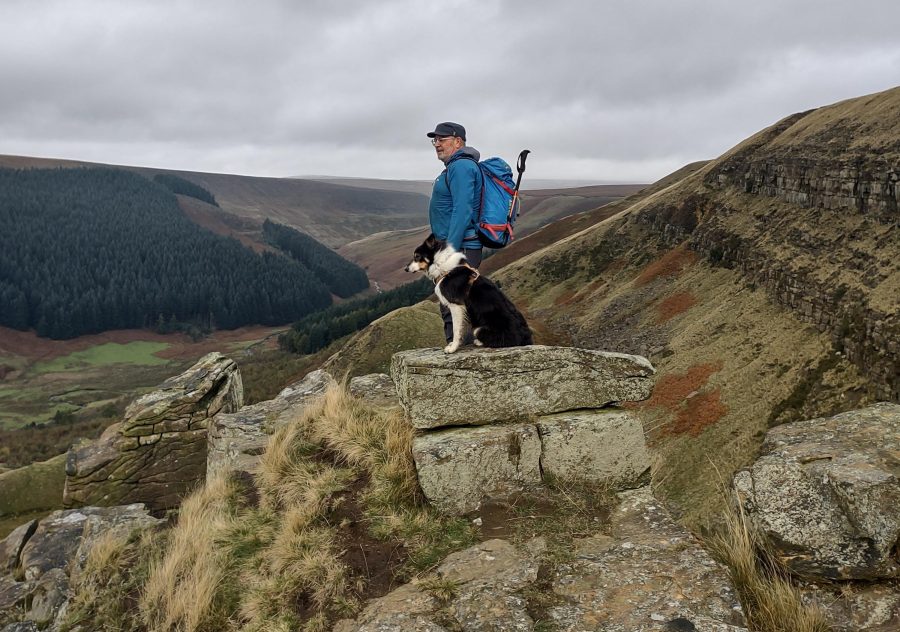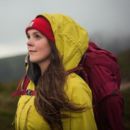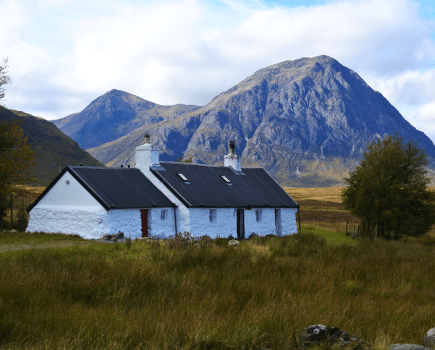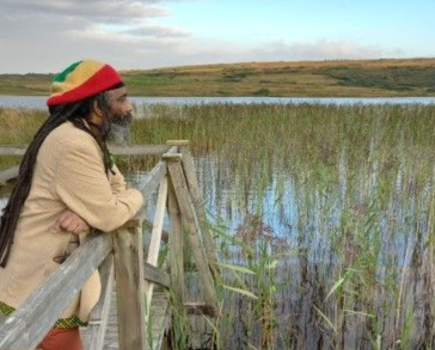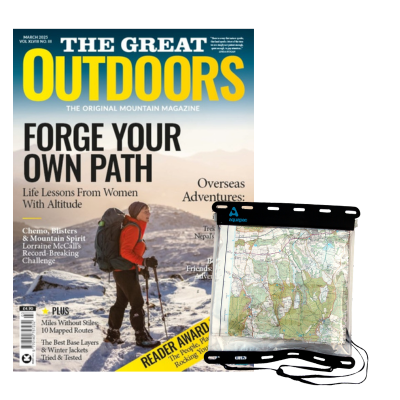Francesca Donovan finds a unique perspective on commitment outdoors rhythmically narrated by Paul Besley in The Search – The Life of a Mountain Rescue Search Dog Team.
Main image: Scout and Paul, a dynamic Mountain Rescue Search Dog Team duo | Credit: Paul Besley
We love our canine companions in this country, don’t we? In the Peak District, Scout the Search and Rescue dog is somewhat of a celebrity, often papped at Mountain Rescue fundraisers and admired for his agility and ability to find those lost and in need of help in our high places. It’s a deserved reputation. But in The Search, you’ll find something far deeper than a headline-inducing rescue and a photograph of a wet nose and wagging tail.
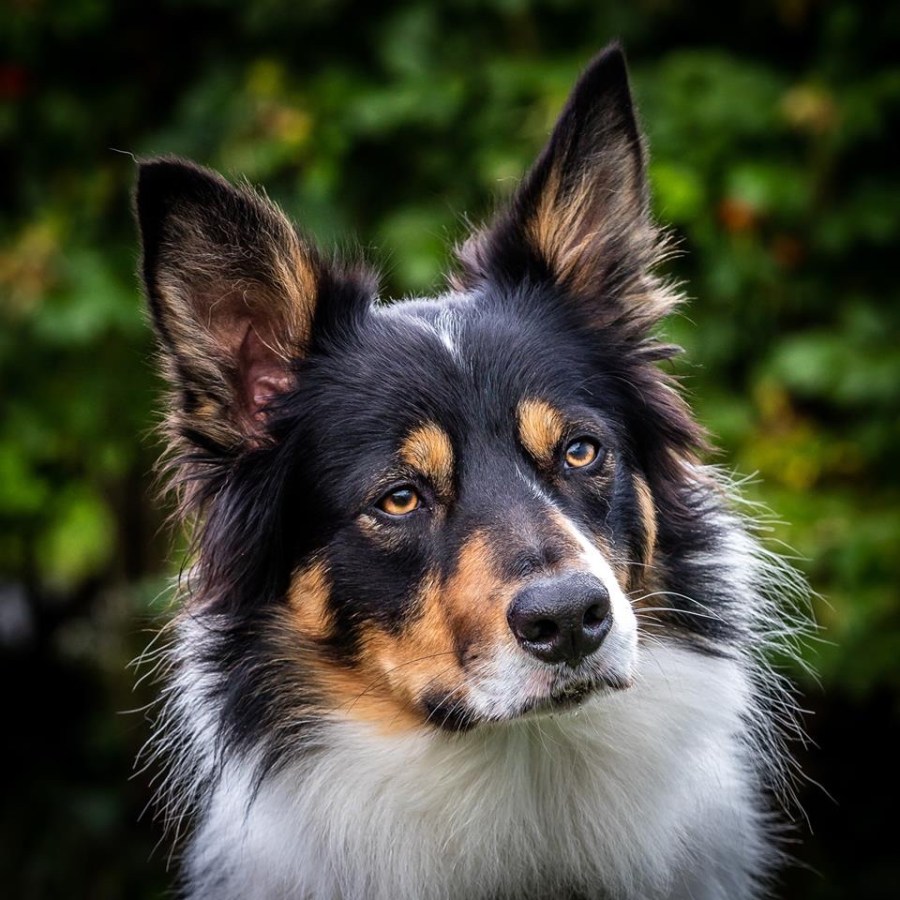
The book offers an honest, deeply searching account of how Scout came to be brilliant at his job – as told by the human beside him during the years of tireless training, searching, rescuing. Paul Besley – despite having written a number of acclaimed Peak District guidebooks – might be less recognisable than his four legged best friend.
We meet Paul in midwinter at a near-fatal low point, having slipped and severely injured himself below Raven Tor in the Lake District. Before the book’s narrative goes onto recount his relief at being saved by local Mountain Rescue volunteers, triggering a life-changing decision, the visceral description of his injuries match the tone with which Paul artfully paints a picture of the landscape and its howling weather. Throughout The Search, there is a violence and vividness to his writing that conveys the extremities witnessed by someone who’s spent many years volunteering for the Woodhead Mountain Rescue Team and seen our high places at their most harsh.
The scenes – often narrated from a removed distance with nature is at the centre and humans merely pawns – suit Paul’s rhythmic prose. His tone is captivating; more like a film noir script than the whimsical nature writing to which we have become accustomed.
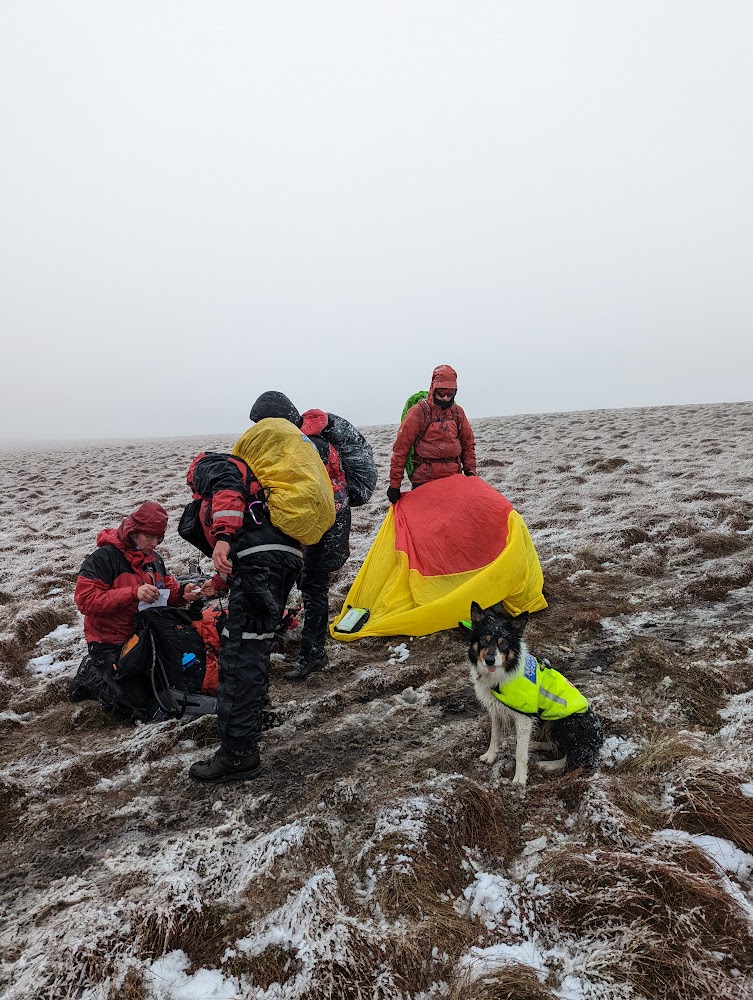
As Paul narrates his early life in a Yorkshire steel town, there’s a good deal of sex and drugs as administered by “Hogarthian” figures of influence. The story is more riveting and real than any I’ve seen played out in the latest award-winning BBC drama. As I read on hungrily, I found myself grateful that The Search is not your average outdoor book. No stuffy solemnity here. I found The Search to be unique within the outdoor literary oeuvre and its honest, holistic approach to storytelling is undeniably entertaining.
With the mills and hill injuries behind Paul, insights into his home life as an adult and the pressure of training Scout while searching for his own purpose are also generously given. Indeed Paul isn’t afraid to turn his pen on himself. Looking fearlessly into the mirror, the author documents his inner conflicts, often turning to the hills for a release many readers will recognise. All the while, he’s happy to stand in Scout’s shadow, crediting the dog for guiding his path.
The chapters detailing Scout and Paul’s National Search and Rescue Dog Association (NSARDA) training are educating and document years of work to get both Scout and Paul up to scratch in terms of their skills and fitness before they were welcomed into Woodhead MRT. These “training” chapters are also peppered with the usual proclivities of and conflicts between the humans who frequent our high places. Paul’s observations are wry and at times incredibly funny – perhaps a nod to the gallows humour adopted by some Mountain Rescue volunteers to enable them to cope with the job.
The author’s assessments are sometimes profound and sometimes juicy, but importantly, never judgemental. At a time when conversations within the outdoor community are rife with gatekeeping, Paul is refreshingly unbiased, preferring to celebrate every person’s right to explore our landscape safely.
This warm approach reflects the attitude of non-judgement I’ve found across Mountain Rescue organisations. I have been lucky enough to spend a few days out in the hills with members of various Mountain Rescue teams in the Lakes and Scotland and, within the pages of The Search, I still discovered a great deal of new insight into the near-heroic levels of work these volunteers do to offer safety to hillgoers.
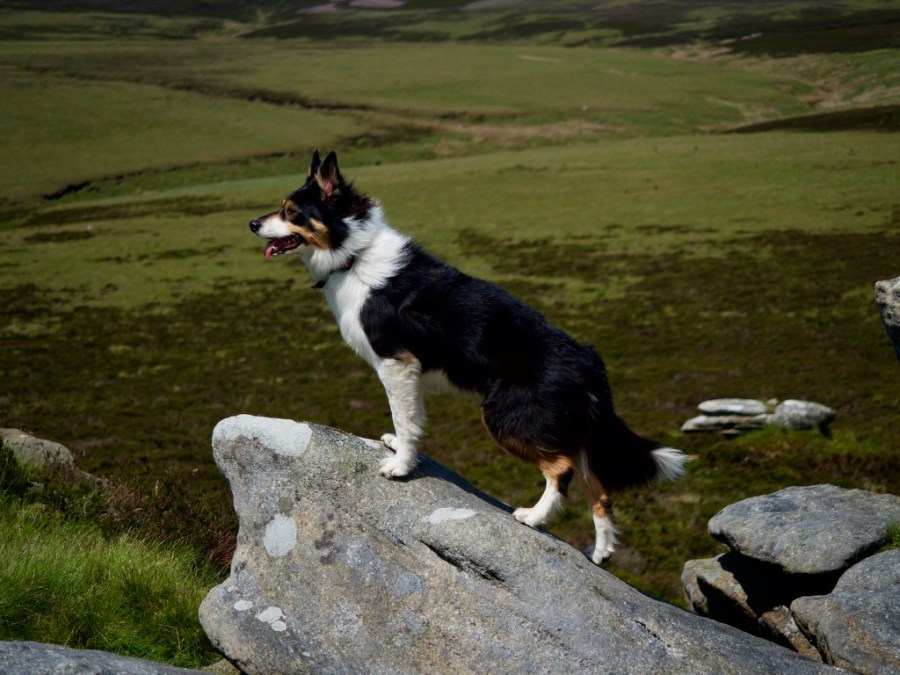
Paul, like other volunteers I’ve met, would no doubt baulk at the ‘hero’ label. In his book, he paints himself more antihero than otherwise. This depiction doesn’t feel over-dramatised, but rather genuine and authentic. What does shine through, alongside his own complexities of character, is his deep respect and fondness for the outdoors.
Anyone who loves the Peak as Paul does will delight in recognition of some of the lesser trodden places visited. You might pick up a few tips on doing so safely in these pages – or at least learn some of what not to do from the rescues he recounts. What I picked up most from this book, though, is a reminder to remain connected to the beings around us and the landscape that holds us. This is the most valuable lesson Scout has taught Paul.
The Search – the life of a mountain rescue search dog team is published by Vertebrate (paperback, £14.95)
When contributors to The Great Outdoors aren’t out walking, some like to relax with a good book. Read their outdoor book reviews and discover your next adventurous bedtime story.

